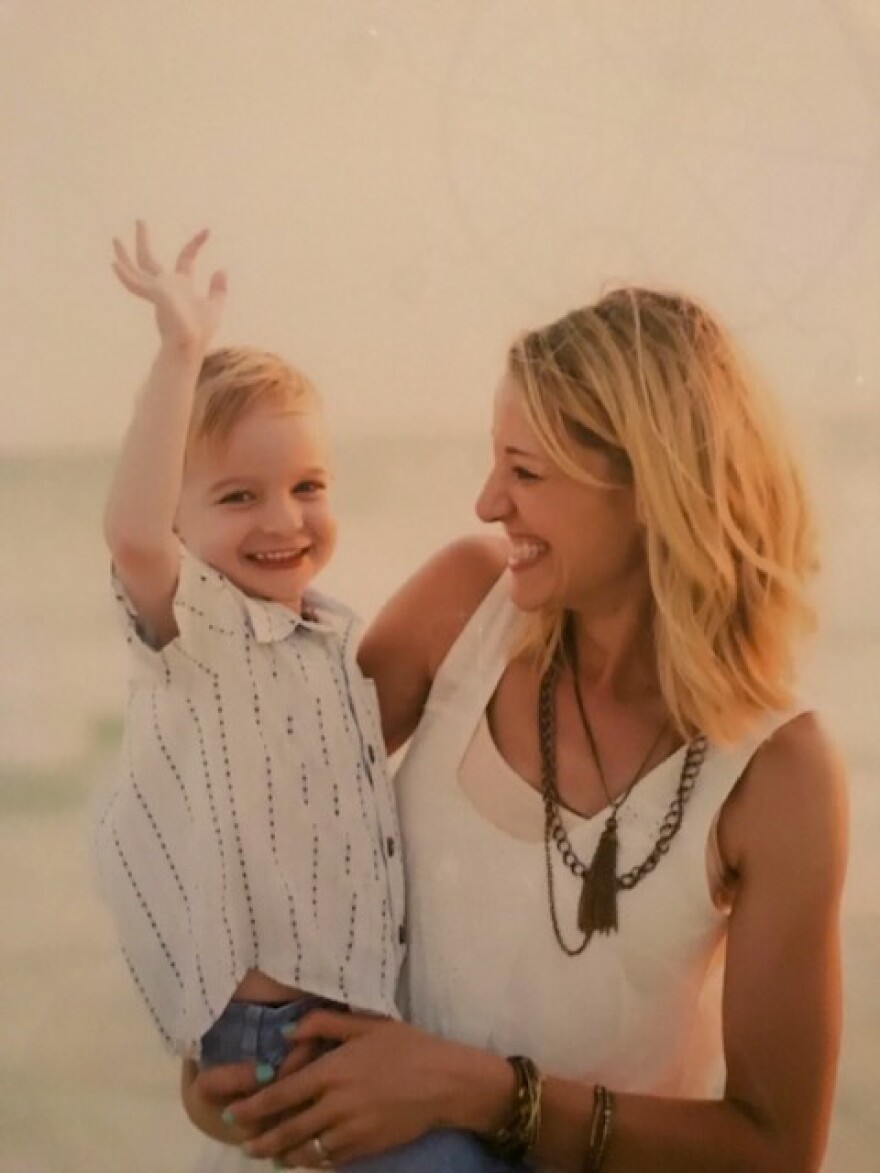After her son Chase died in 2015, Tracey Bailey left his room untouched—down to the last overnight bag the 16-year-old took with him to St. Jude Children’s Research Hospital, where he had been receiving bone cancer treatment.
“I come in here every day...it gives me a sense of peace," says Bailey, of Clarksdale, Miss.
For a while, finding peace seemed impossible. But for her and other St. Jude families, a mentorship program has provided bereaved parents extra emotional support.

Wendy Avery, a fellow mother who lives in Canfield, Ohio., helped found the program several years ago.
Her 15-year-old son Nick died in 2006 at St. Jude after an eight month battle with acute myeloid leukemia. At the time, the hospital had limited resources for the surviving families of the roughly 20 percent of patients, or about 150 people, who die each year at the research institute.

“You’re kind of in a fog,” Avery says of the shock of loss. “You almost become incapable of looking for your own help and knowing where to look and what to do or even knowing exactly what you need.”
Avery is a so-called "mentor" in the program, which partners parents coping with a more recent death with those who have had a least a couple of years to heal. They offer insight into how to navigate a new normal and most importantly, an outlet to talk unfiltered.
Dr. Justin Baker, head of palliative care at St. Jude, says bereavement services are a newer area of emphasis for hospitals. Institutions that once had little to no plan in place to address the wounds of loss now see it as an essential part of treatment and healing.
“By bringing [death] up, we’re not hurting [parents] in any way, it’s by not bringing it—by not allowing them to participate in these kinds of activities—that we are really causing them harm,” Dr. Baker says.

While some hospitals offer support groups or check-up phone calls, the mentorship program at St. Jude is unique in that it draws from its extended community, who have wrestled with loss in similar ways.
Parents are often uncertain about how to cope with holidays the first year after a death, birthdays that pass without the honoree or even how to talk about losing the fight with cancer.
“Who do you tell it to anyways that’s going to want to listen without either being freaked out or crying themselves?” Avery asks. “So another bereaved parent gets it.”
Tracey Bailey once leaned on Avery for support. Now she is a mentor to others.
“We don’t have all the answers,” says Bailey. “But, we do have the ability to walk alongside these parents that have lost their children like we have and just to offer comfort and love.”
Tasha Ives’ daughter Sydney died in 2009 from a brain tumor. She says there is an instinctive, common language spoken by those who have lost a child.
"You don’t almost have to qualify what you are going to say,” she says.

St. Jude’s mentors are scattered across the country, meaning pairs in the network communicate over the phone or text, rarely meeting in person. This can be less intrusive for some.
“They’re able to have this kind of anonymity,” Tasha says. “They’re not having someone look at them with grief and pity on their face.”
Her husband Dean, also a mentor, has found that men are less comfortable addressing emotional pain.
“You learn to just listen, and you ask questions like: ‘Do you have any other children—tell me about them. What are they doing?’” he says.
St. Jude doctors also rely on bereaved parents to teach them. Physicians often view a child’s death as a personal failure, not one of science, says Dr. Michael McNeil, a pediatric oncology fellow.
He’s participated in role-playing scenarios with bereaved parents to practice delivering bad news with compassion and embracing uncomfortable silences.

“Most of the time, the words I say don’t matter as much as just being there,” he says.
After Lisa Trumbo lost her son Trevor, 3, to brain cancer, she received voicemails and texts from a mentor but never replied to them. For her, she didn’t necessarily need to talk; it was enough to know someone else was checking on her and understood what she was going through.
“We’re more than bereaved parents,” Trumbo says, now a mentor herself. “But that’s what brought us together.”


